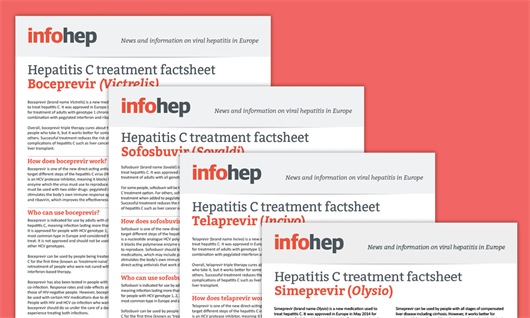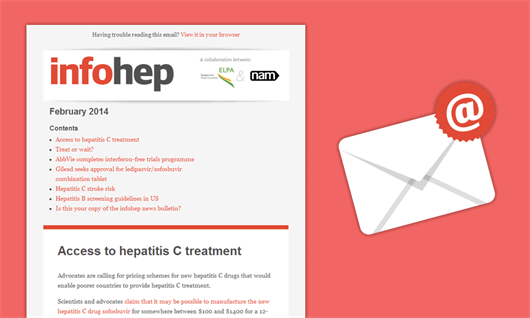The European Commission has approved Daklinza (daclatasvir), a pan-genotypic NS5A inhibitor for use in combination with other medicinal products across genotypes 1, 2, 3 and 4 for the treatment of chronic hepatitis C virus (HCV) infection in adults.
Daclatasvir is approved for use in combination with either sofosbuvir (with or without ribavirin) or with pegylated interferon and ribavirin.
Further details regarding the use of daclatasvir are available from the European Medicines Agency website.




Connect with infohep on Facebook: Keep up to date with all the latest news and developments.
Follow infohep on Twitter for links to news stories and updates from infohep.org. Follow us at www.twitter.com/infohep.
Follow all the infohep news by subscribing to our RSS feeds.